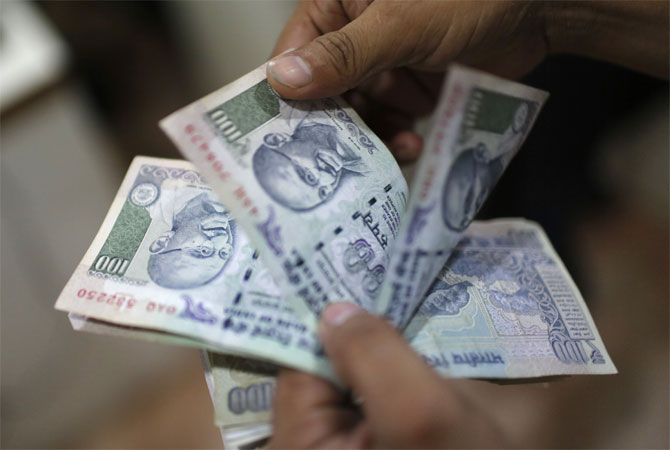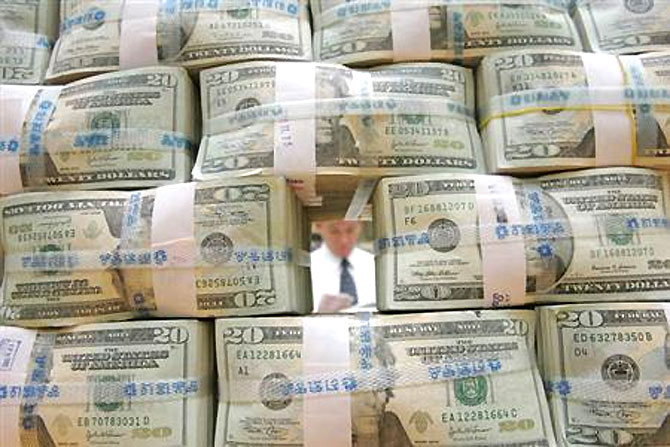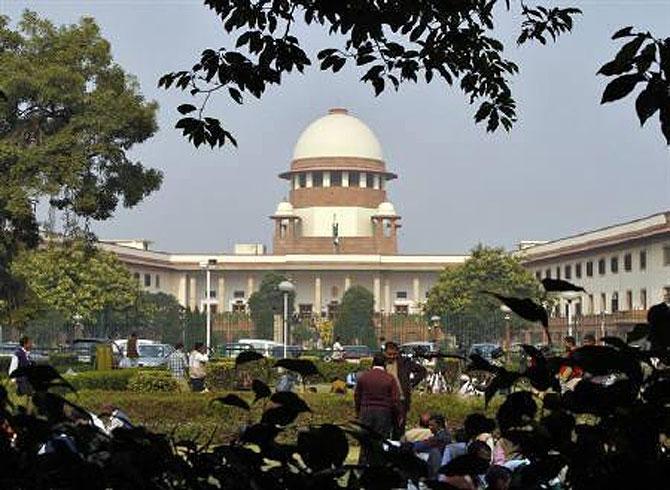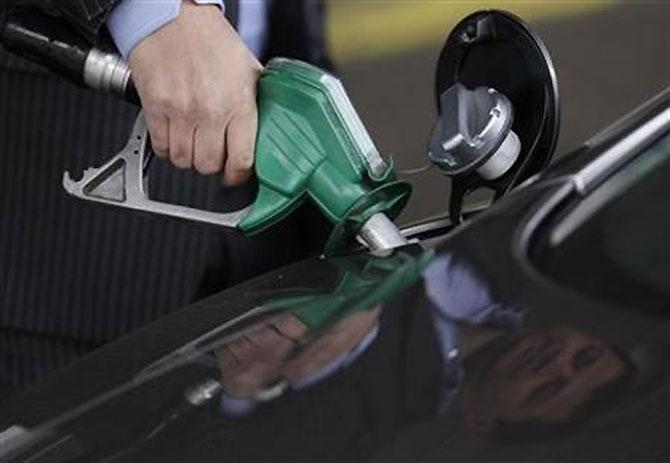
The policy makers took the forecast of India becoming a major economic power as inevitable
Silicon Valley entrepreneurs blame the Indian government for the financial mess and the rupee’s fall.
Venktesh Shukla, president, The Indus Entrepreneurs-Silicon Valley, says, “The fall in the rupee is not that big a deal in itself as it will find a level that is optimal given the circumstances. But the fall in the rupee has come to symbolise an overall sense of despair and loss of faith in the inevitability of India’s growth story. That is the real cause of concern.”
After the initial burst of reforms from 1991 to 2004, Shukla says, complacency seemed to have set in India.
The policy makers took the forecast of India becoming a major economic power as inevitable and did not make tough policy choices that were needed to move India in that direction.
Click on NEXT for more...

Though this was perhaps the only instance in history where the existing powers were rooting for an emerging power to become stronger instead of resenting its rise, some of the needed second-generation reforms were either not taken or implemented in a ham-handed manner.
“With the result that the growth story of India is stalled, the employment generation machinery is stuck in low gear, creating an overall sense of despondency,” he adds.
Shukla says the perception about India’s attractiveness as an investment destination has taken a nosedive for a variety of reasons — infrastructure bottlenecks, regressive economic policies, bureaucratic sloth and, of course, poor governance and corruption.
The fall of the rupee has just become a symbol of all that has gone wrong with India lately.
Many TiE co-founders and members have invested in India.
Click on NEXT for more...

One such pioneer investor is Kanwal Rekhi, a managing partner at Inventus Capital Partners, which has operations in Silicon Valley and India.
“We invest in dollars and our return is in rupees. Any depreciation of the rupee has a direct impact on our investments,” Rekhi told India Abroad. “The rupee has already depreciated by almost a third since we started our fund. It has made India a very unattractive place to invest.”
“Further unclear and uncertain tax policy on these investments is not helpful.” Rekhi added. “The rupee is headed for a big fall. I can see 100 to a dollar in the not so distant future.”
“What the government needs to do is get out of the way,” says Rekhi. “In addition to getting rid of petroleum and other subsidies, it needs to embrace free trade, open FDI and clearer and stable tax policy.”
Raju Reddy, executive vice president, global services, Hitachi Consulting and another angel investor, blames the Indian government.
Click on NEXT for more...

He says the financial mess did not happen overnight; it happened because of a series of policy blunders — subsidies that have cost the treasury, retro taxing, where the Indian government reversed a Supreme Court ruling — and the bureaucracy which misuses policies.
“When you do something like that, it really shakes the economy and the confidence of investors,” Reddy says. “We had a fantastic opportunity to become a strong economic power, but we shot ourselves in the foot.”
In the long term, he adds, he is still bullish on India.
Trip Chowdhry, managing director, equity research, Global Equities Research, differs slightly.
He believes India’s polices are fine, but the country needs to be self reliant and less dependent on oil.
Click on NEXT for more...

He echoes Rekhi in the belief that the rupee should be allowed to fall, but is more radical in his suggestions: “Falling is a healthy thing. If they think what is right for their country, they should let the rupee get to 200 or 230 by the end of this year. That would be a better way for the country, but I am not sure whether they want to do good for the country.”
“The only way out,” Chowdhry says, “is, for India to be less reliant on foreign oil, and get off all the imports that is discretionary. They should allow people to work from home, so that people actually do not consume as much oil. India has to use its own resources and set up new infrastructure using rupee denomination without the need for imports.”
“India can still grow at 10 percent GDP a year, but they need to stop imports and use their own resources.”